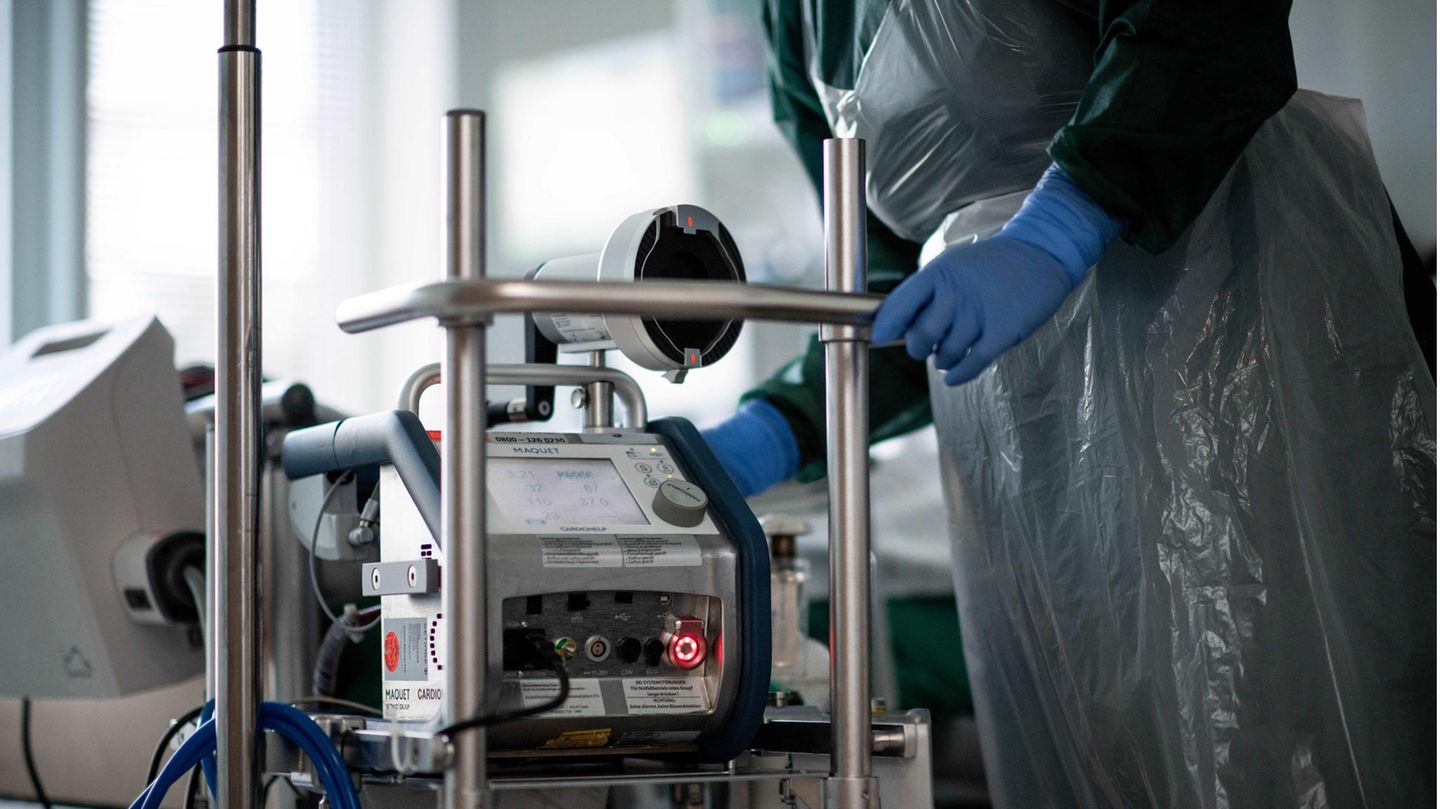There are voices from hospitals that are simply angry about unvaccinated corona patients. Rightly – or does professional ethics prevail?
In a private Facebook group, the anger about unvaccinated Covid-19 patients sometimes boils up. “Honestly? I would have loved to give him a punch,” writes a nurse from Bavaria about a man she helped to nurse to health in an intensive care unit. When the patient recovered, he told her that it wasn’t all that bad. And that he will not adhere to any protective measures in a “dictatorship of Corona disciples”. “Can you understand that I really don’t feel like it anymore?” Asks the intensive care nurse and posts a photo of herself in a corona protective suit. “I need a little encouragement.”
It’s a voice that wants to remain anonymous. Also out of concern that there might otherwise be trouble with her clinic. How big is this group of frustrated helpers? And what does it do to doctors and nursing staff when they treat people in the pandemic who, with a full corona vaccination, would probably not be in bed in front of them? Is that different than when a chain smoker or a heavy alcoholic comes to the emergency room?
Emotions are “completely normal”
The Interdisciplinary Association for Intensive Care and Emergency Medicine (Divi) initially counters professionalism. In medicine, patients are treated “regularly” who have more or less influence on whether and how sick they become, it is said. As part of a professionally qualified medical and nursing activity, it is therefore everyday life to deal with it. It is important “not to let this knowledge about a possible contributory cause of the patient have a negative effect on the treatment or the relationship”. But the Divi also replies: “Of course, emotions towards the sick person are quite normal, including negative ones.” However, they belonged in a different context. “They must of course be taken seriously and also have their space.”
Isabella Heuser knows such a room very well. The professor heads the clinic and university outpatient department for psychiatry and psychotherapy at the Berlin Charité. You have no statistics or reliable data, says the doctor. “But in our morning meetings we always talk about the following: that it is actually irresponsible that solidarity is no longer being demanded. That everyone is expected to be ready to vaccinate.” If there are free and convenient vaccinations everywhere, there is no longer any excuse for a person to become seriously ill.
According to the Robert Koch Institute (RKI), the risk of having to go to hospital with a corona infection is currently around ten times lower for vaccinated people than for unvaccinated people. According to RKI estimates, vaccinations prevented around 77,000 hospital stays and around 20,000 cases in intensive care units between January and July alone.
The Helios Group, which operates 89 clinics in Germany, takes a very close look. Of the 214 Covid-19 cases that were treated at Helios in the 37th calendar week, 73 percent were unvaccinated, according to statistics. Almost 12 percent of Covid 19 patients would have been in the intensive care unit, also here mostly unvaccinated.
“Less and less understanding for the unvaccinated”
“The general feeling here, especially from the nursing staff, is that there is less and less understanding for those who have not been vaccinated,” reports Charité psychologist Heuser. She doesn’t mince words herself. “I am extremely annoyed about it. Unvaccinated people take the beds away from other sick people – although they would not need these beds with vaccinations. That is an incredibly unsound attitude.”
This setting also seems convenient and, above all, harmless. “So whether I consciously do not get vaccinated or whether the embassy has not reached me. It doesn’t matter. I need an intensive care bed,” said Charité virologist Christian Drosten recently in the NDR podcast. “Nobody in the hospital will say: Wait a minute, but you are not vaccinated. You could have been vaccinated. Now the ambulance is going back home.”
The number in intensive care units nationwide has increased again in the past few weeks to around 1,500 Covid 19 patients. The Verdi union does not want to limit the burden in the clinics to Covid-19 alone. At the moment, the nursing staff is more likely to feel stress due to catching-up effects, reports Grit Genster, Head of Healthcare. The additional burden due to the many previously postponed operations is already great. “And then there is the worry that everything will start all over again.”
Outrage is directed against politicians and clinic operators
The outrage is not attached to the patient, emphasizes Genster. “It’s about politics and the hospital owners who have not made provision for relief. The lower limit for staffing is not the red line, but the upper limit.”
The nursing staff had the feeling that politics and employers had learned nothing from three waves of pandemics. “We would like a different culture with a view to occupational safety and breaks,” adds Genster. This frustration has consequences in Berlin: The nursing staff at the state-owned clinics of Vivantes and Charité went on strike.
Their professional ethics keep many caregivers from loudly scolding unvaccinated corona patients, says Genster. “We continue to promote the vaccination.” The number of those who oppose the vaccination makes up only a small proportion. Most people are rather insecure.
The vaccination rates in Germany show a sobering picture. Despite numerous appeals, unusual vaccination points from the zoo to the S-Bahn and small rewards such as bratwurst or kebab – the rate is almost stagnating. At the moment, around 64 percent of all German citizens are fully vaccinated. Well over 80 percent would be desirable.
In her spare time, psychologist Heuser now actively asks when she sees people who are keen on shopping do a corona test in front of the Berlin KaDeWe. “Why don’t you get vaccinated?” The answer she received was: I don’t believe in it. “It can get bad there,” says Heuser, who also holds an honorary professorship in Hanoi. “Doctors in Vietnam would lick their fingers for it if they could distribute vaccinations like we did. We have an absolute luxury problem in Germany.”
Heuser, who was optimistic about the willingness to help in this country at the beginning of the pandemic, is now disappointed. “I really overestimated the solidarity in Germany. I find what I see now embarrassing.”




